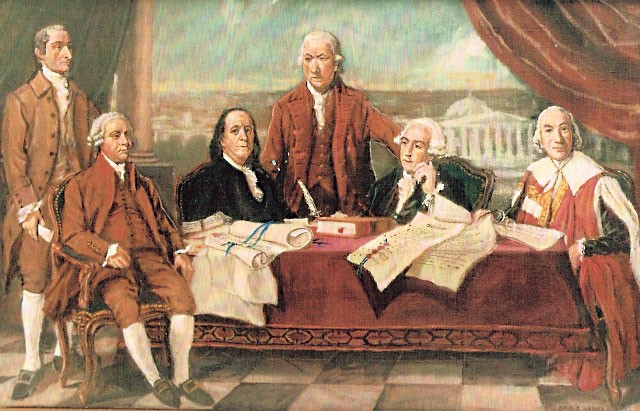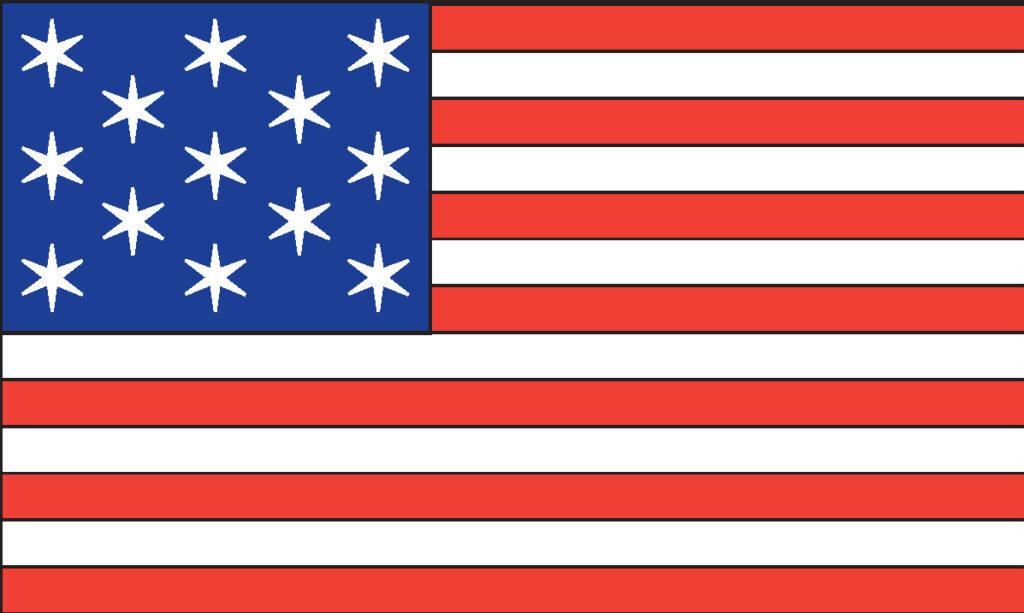John Adams, Benjamin Franklin and John Jay, for the united States; and David Hartley the Younger, for Great Britain sign the 1783 Treaty of Paris recognizing the independent Union of 13 States, not one unitary nation:
His Britannic Majesty acknowledges the said United States, vis, New Hampshire, Massachusetts Bay, Rhode Island, and Providence Plantations, Connecticut, New York, New Jersey, Pennsylvania, Delaware, Maryland, Virginia, North Carolina, South Carolina, and Georgia to be free, sovereign and independent States; that he treats with them as such, and for himself, his heirs and successors, Relinquishes all claims to the Government, proprietary and territorial rights of The same, and every part thereof.
[restored 9/5/2021]
Subsequent Events:
Authority:
Articles of Confederation, Article IX [Section 1]
ccc-2point0.com/articles-of-confederation
References:
Thomas J. DiLorenzo, Lincoln Unmasked: What you are not supposed to know about dishonest Abe, (New York: Crown-Forum, 2006), 89
Calvin D. Linton, ed. The Bicentennial Almanac: 200 Years of America, 1776-1976, (Nashville, Tennessee: Thomas Nelson, 1975), 34.
Avalon Project – British-American Diplomacy: The Paris Peace Treaty of September 30, 1783
avalon.law.yale.edu/18th_century/paris.asp


